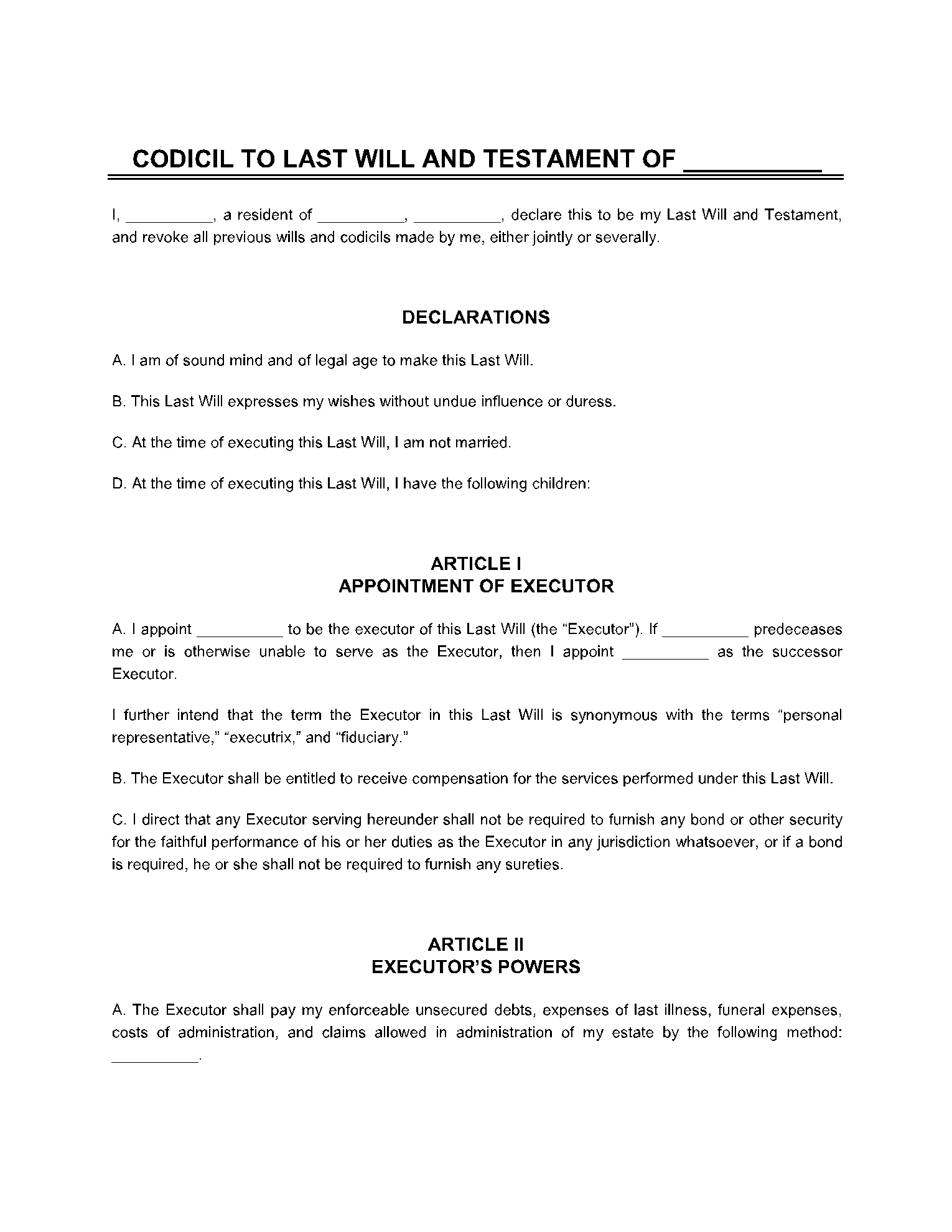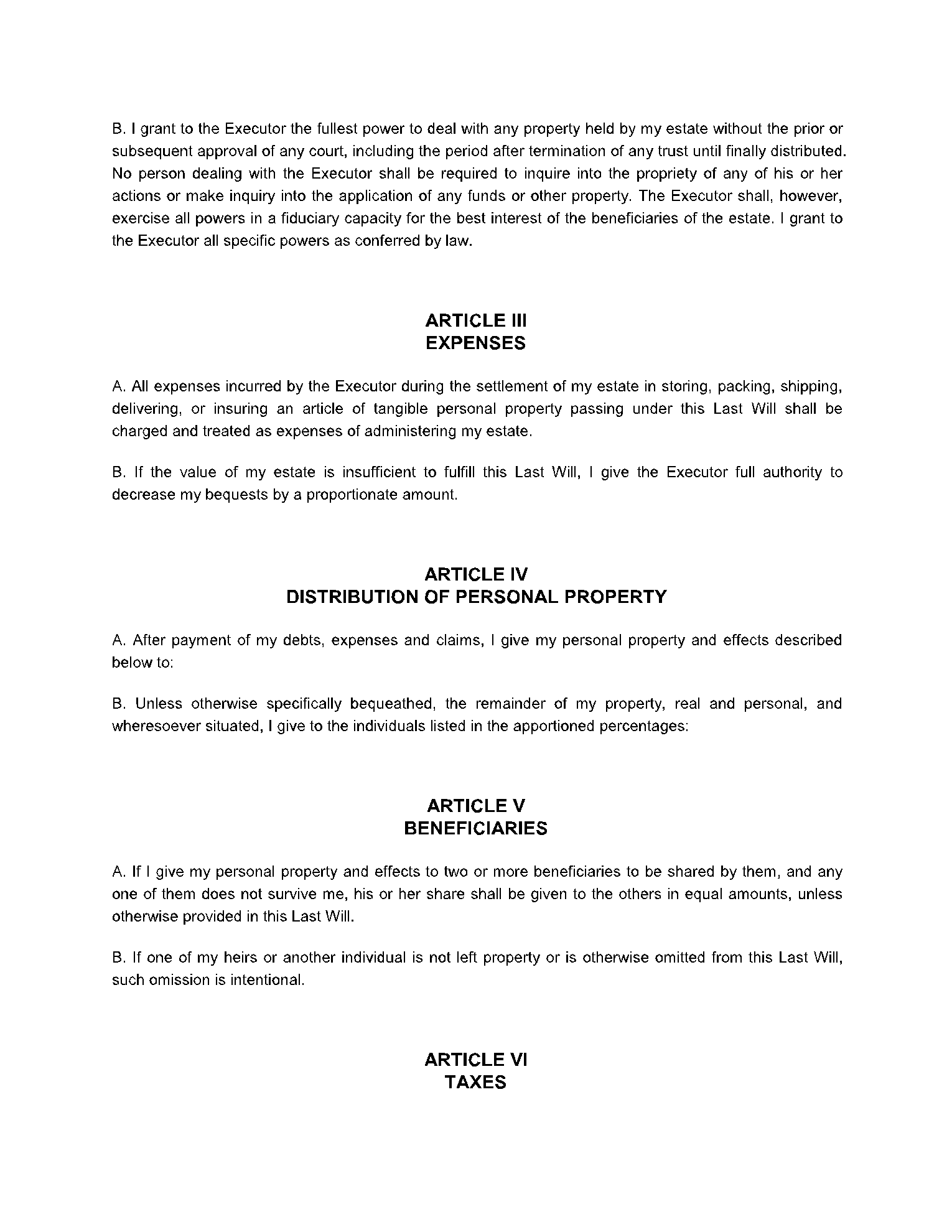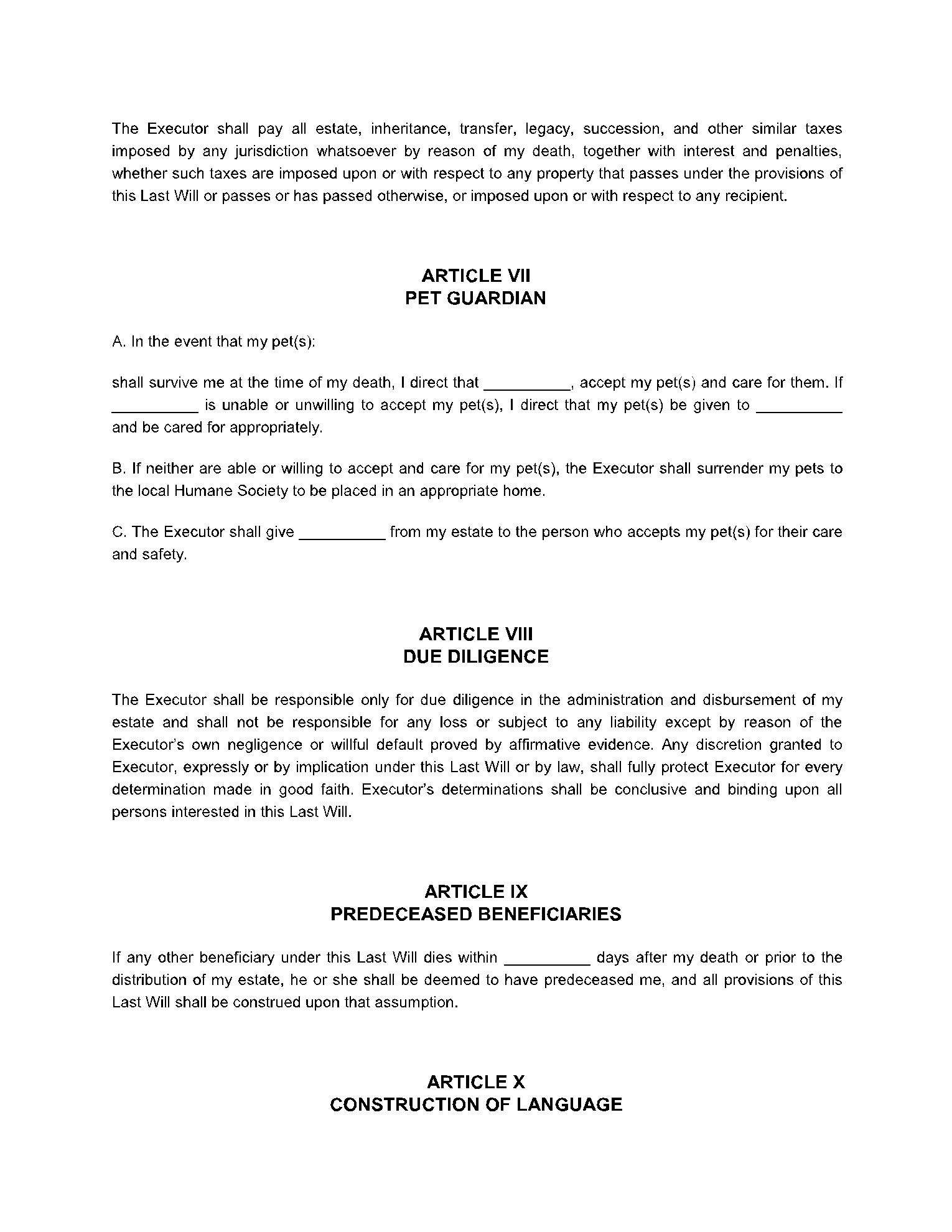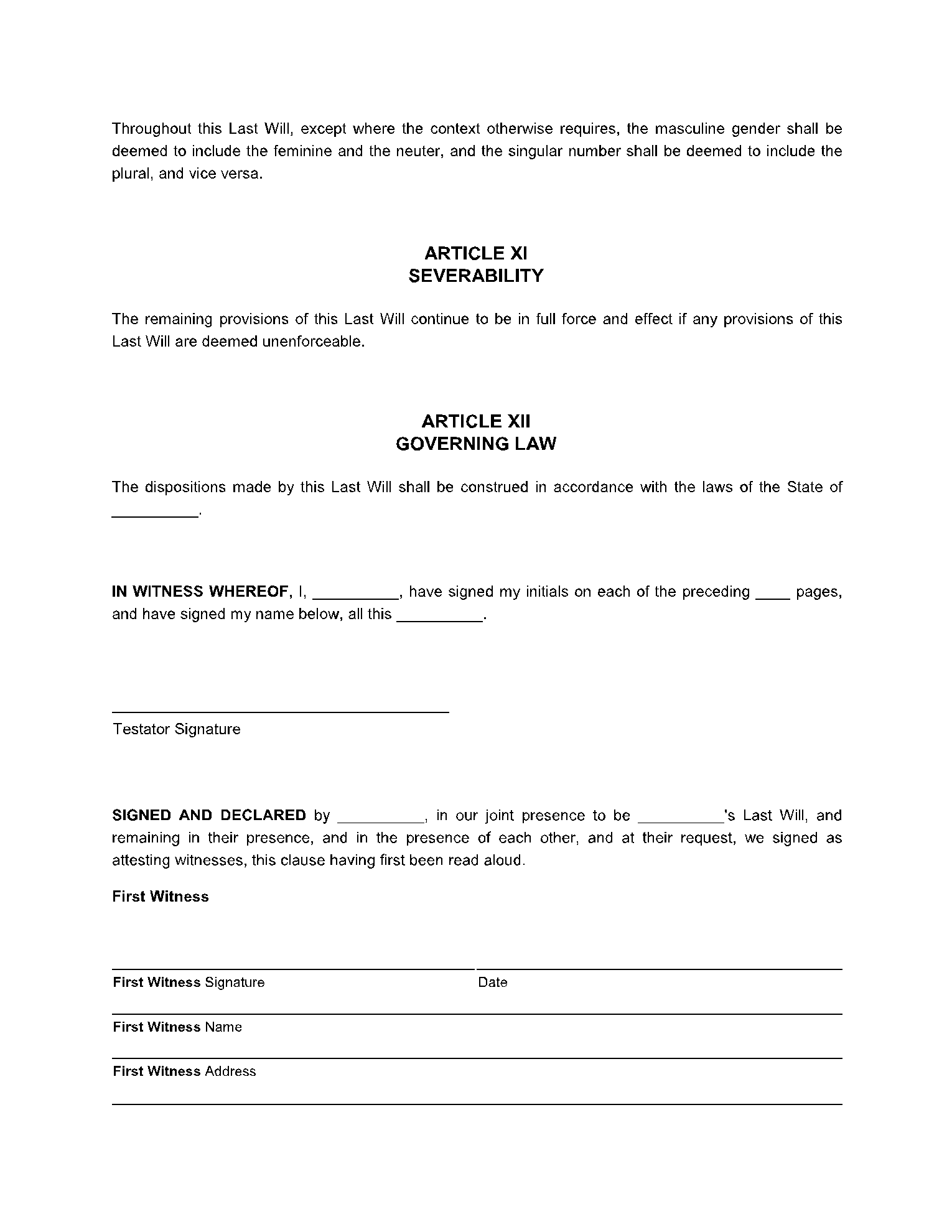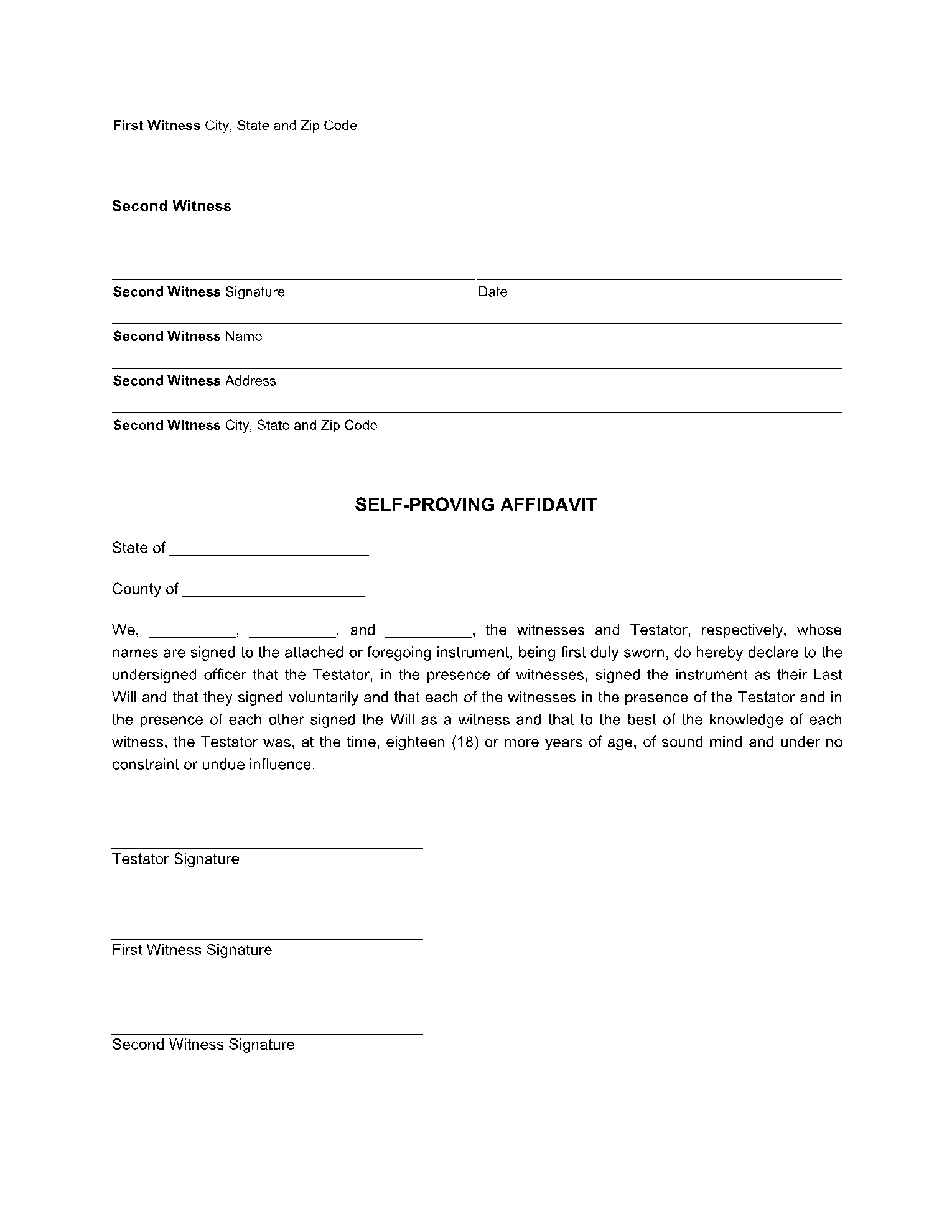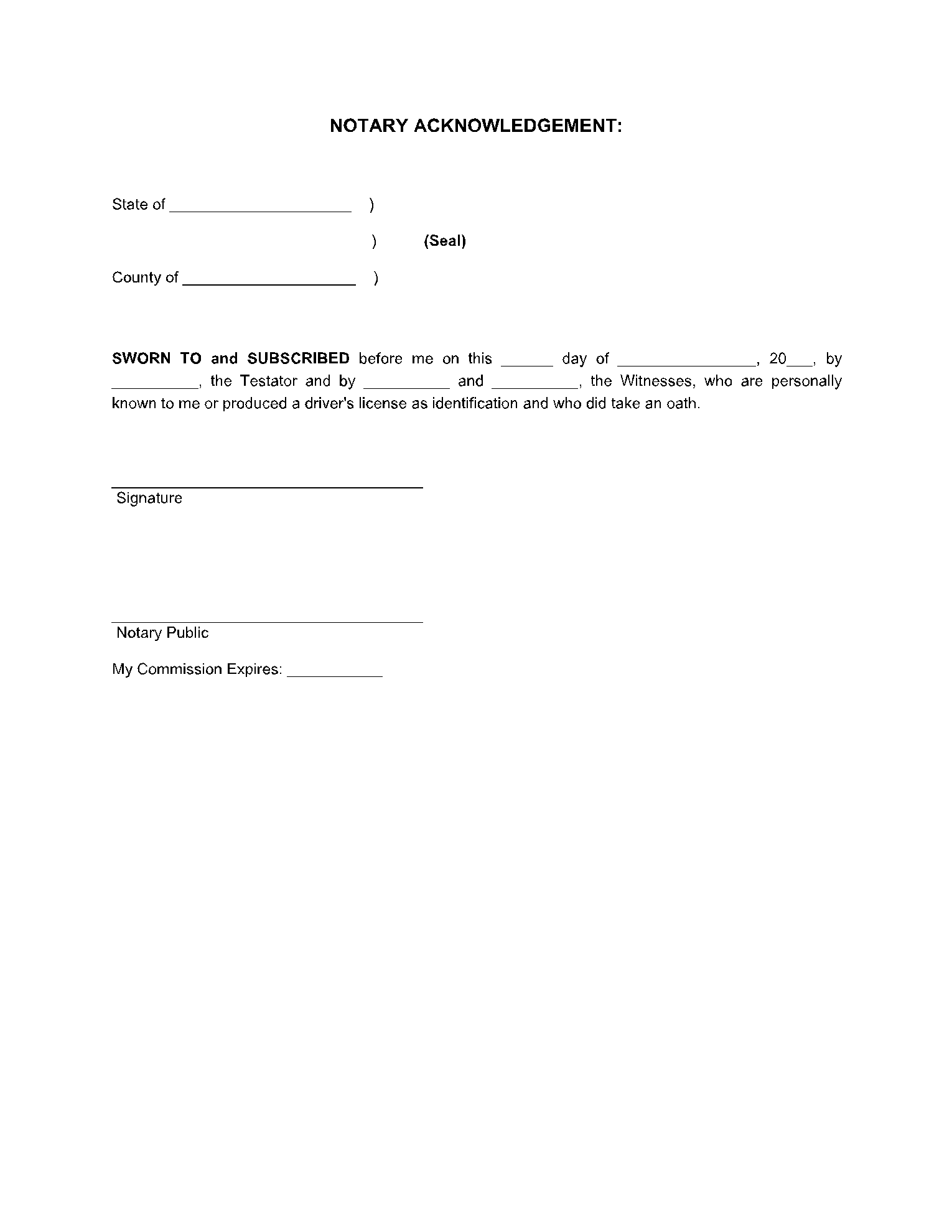Signing and executing a will under the provisions of the law is sometimes not the final straw in the lifecycle of a will. The testator might need to make one or two changes on his or her will, including adding another beneficiary to the existing list. The most convenient way of effecting this change is using a codicil form.
Codicil forms are usually used when only few changes are to be made. Otherwise, the testator should consider writing a new will. This article explains a lot more about a codicil form, its contents, and the consequences of not using one.
What is a Codicil to Will?
A codicil to will is a legal instrument used to modify, add or revoke part or the entirety of the will. Used to make alterations to a last will, it must be signed and executed in like manner as a will depending on the state laws in which it was created. The witnesses to a codicil should not have been mentioned in the will. The codicil to will can also be executed with a self-proving affidavit.
When used to modify part of a will, it affects only the section for which it was created and will leave the other provisions or sections unchanged. A will may be modified by one or more codicils. However, the more the number is, the more difficult it is to keep track of what has been changed from the original document. Each will should make reference to the original will and all other preceding codicils.
Sometimes, when too many changes are made to a will or when these changes are rather drastic, the court may get involved to monitor the handling of the properties, especially when the subject is an estate. A codicil to a will should be kept together with the will it is modifying.
What Is Included in a Codicil to Will?
There are some elements that must be present in every codicil template or form. They include a title, opening paragraph, changes to be made, signatures and statements of the person making the codicil.
Title
The title of the codicil should be the same as that of the will. It should also contain the phrase “Codicil to the” before the title of the will.
Opening paragraph
It should highlight that the testator is of sound mind and wishes to make modifications to the original will, effective from a particular date.
Changes to be made
It should clearly highlight what segment of the will it is changing.
Closing paragraphs
After stating the changes to be made, the codicil should end with a clause like this:
“In the event that any statement in this Codicil contradicts the terms of my Last Will and Testament dated {insert the date of the will}, the terms of this Codicil shall control.
In all other respects I reaffirm and republish my Last Will and Testament dated {insert the date of the will}.”
There are also spaces for the testator, witnesses to the codicil and the notary public to sign and fill in the date they become effective.
When Do I Need a Codicil to Will?
Codicil to wills are typically used when:
- The testator intends to make changes to his or her existing list of beneficiaries or add other names like a new grandchild or charity organization etc.
- The testator has acquired more assets and want to make provisions for them in the will
- The executor of the will is unavailable and an alternative executor wasn’t named
- The gifts bequeathed in the will become unavailable
- The person poised to receive these gifts has passed away
- The testator intend to increase the value of his or her gift to reflect price inflation since the will has been created
- The wishes of the testator in regards to his or her funeral arrangement has changed
- The provisions for your children need to be modified because they are no longer minors and these provisions were made on the premise that they were so.
Consequences of Not Using a Codicil to Will?
The following are some of the consequences of not using a codicil to will:
- Other parts of the will become contestable because of an ademption, which occurs when the property to be bequeathed no longer exists or has been handed out to the individual while the testator is still alive
- Beneficiary may not get a gift because the testator’s charitable intent was not clear enough
- Confusion and misunderstanding between designated beneficiaries from having a court interpret the contents of the will.
- Having a deceased guardian still named guardian over the minor children of the testator.
FAQs
-
When should I consider writing a new will?
If you need to make a lot of amendments to your existing will, it is best you write a new will. In general, you should consider writing a new will, if:
- You are getting divorced from your partner and have listed him/her as one of your beneficiaries
- You want to change the entire scope of how you want to share your assets
- You are getting married and have to make provisions for your spouse or children to come.
-
Who is eligible to make modifications to a will?
Only the testator who wrote the original will is legally permitted to make modifications to their last will and testament. So, once they die, changes can no longer be made to the will. It is not within the rights of an individual with a power of attorney to make changes to their principal’s will.
-
How do I write a codicil to a will?
In writing a codicil, you have to clearly write your name, residence and the date you signed your original last will and testament. Following this, you should list out the amendments you wish to make and what clauses you have to modify.
If clauses are to be added, you have to specify in clear and concise language where those clauses are to be added in the will. Take, for example, you might write: “My last will is to be amended by adding the following clause after clause 5 in the original will”, then write out the clause to be added.
-
Do codicils have to be notarized?
This depends on the requirements of the state in which it was created. However, traditionally, they do not have to be notarized. Yet the signing of the testator must be witnessed. The number of required witnesses may differ from state, but it is usually not fewer than two.
In some states, a self-proving affidavit can be attached to the codicil. This self-proving affidavit should be signed by up to three witnesses under an oath and in the presence of a notary public. Using this affidavit, the requirement of one or all witnesses showing up in court to acknowledge the proper execution of the codicil by the testator is waived off.
Testators can sign this affidavit at the same time as their codicil or at a later date if they so desire.
If you are looking for a free codicil form, look no further than here. CocoSign has several codicil forms and templates in stock for you. Most importantly, you can download them and other various templates for free.

